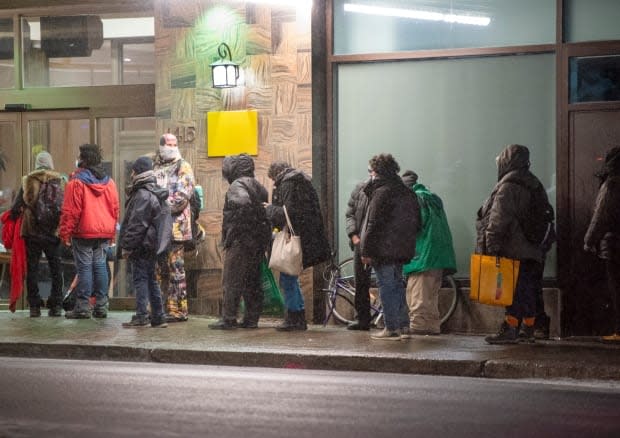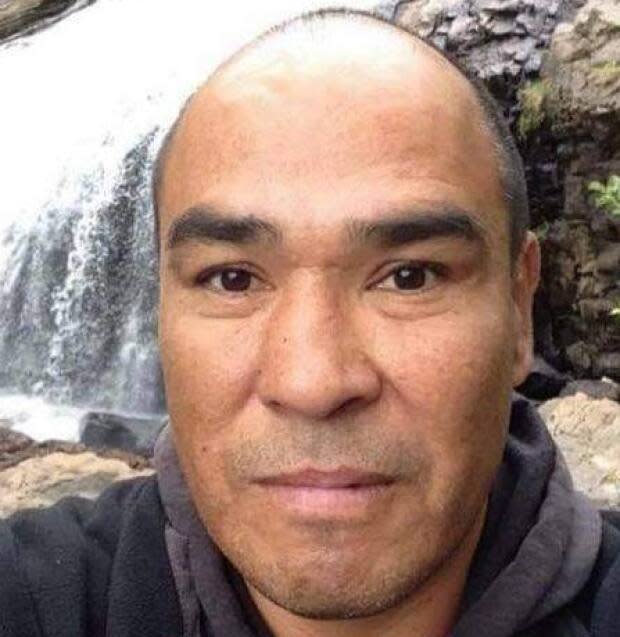Feds push Legault to ease curfew rules, say homeless man's death in Montreal was avoidable
The federal government is adding its voice to those calling on Premier François Legault to relax how curfew rules are applied to homeless people in Montreal, after a man died over the weekend, just steps away from a shelter that was closed for the night.
On Wednesday, Indigenous Services Minister Marc Miller said the death could have been avoided and joined Montreal Mayor Valérie Plante in asking Quebec to be more lenient with the city's homeless population.
Like most other Quebecers, they can't be outside between 8 p.m. and 5 a.m., a public health measure aimed at curbing the spread of COVID-19.
"I would have wanted more flexibility on the part of the Quebec premier," Miller said at a news conference in Ottawa.
Pressure has been building on the Legault government to exempt homeless people from the curfew rules since Sunday, when the body of Raphaël André, a homeless man originally from the Innu community of Matimekush-Lac John, was found in a portable toilet.

André was forced to leave a nearby shelter, the Open Door, which has been barred from staying open overnight ever since a COVID-19 outbreak there last month. He was facing a $1,550 ticket if caught by police outside.
More than 15,000 people have signed a petition, sponsored by the Parti Québécois, backing an exemption for the homeless.
So far, Legault has rebuffed such demands. He justified his position on Tuesday by saying that exempting homeless people from the curfew rules would encourage others to "pretend" to be homeless.
Miller, who represents a downtown Montreal riding, said André's death raises questions about whether homeless people are able to obey the law. "We have to show more humanity," he said.
Quebec's Indigenous Affairs Minister seeks to reassure
Miller's Quebec counterpart, Indigenous Affairs Minister Ian Lafrenière, said police in Montreal were, by and large, directing homeless people to shelters, and had issued only a handful of tickets since the curfew began.
"This is not hunting homeless people in downtown Montreal," Lafrenière said in an interview with CBC News on Wednesday evening.
"If you're in a position where you're homeless in Montreal, you already are vulnerable. You don't need to be scared. You don't to feel that you'll get a ticket."

Lafrenière supported Legault's claim that exempting homeless people from the curfew would be impractical and would encourage others to test the limits of the rules.
Lafrenière promised the Quebec government would set up a warm shelter by Friday evening at Cabot Square, which is a popular downtown meeting spot for Indigenous members of the homeless population.
Quebec also announced it would help the city of Montreal convert the Centre Pierre-Charbonneau arena, near the Olympic Stadium, into a temporary homeless shelter with 112 beds.
Advocates for homeless people had warned Legault, when he first announced the curfew, that it would place many Montrealers in a precarious situation.
Legault downplayed their concerns by saying there was enough space in Montreal's shelters to accommodate them. That claim was contested by the administrators of several shelters in the city.
On Wednesday, Mayor Plante vowed to continue pushing Legault to allow exemptions for homeless people.
"I'm disappointed," she said of Legault's refusal. "The curfew adds significant pressure on those without a home. The shelters are overflowing. It adds to the stress of front-line workers."

